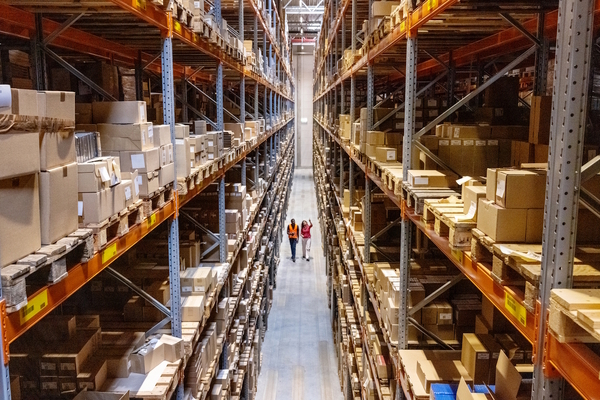Niche products: global demand

Tony Preedy at Fruugo describes how specialist retailers can thrive in international markets
Whether consumers are looking for a particular car part, a personalised pet bed, or even equipment for surviving a zombie apocalypse, online shopping can provide access to numerous retailers specialising in these unique categories.
Specialist brands and retailers can therefore cater to a very specific demographic and build a targeted e-commerce strategy that addresses their needs. However, due to limited budget and resources, many companies believe they lack the capacity to build an international e-commerce platform, and restrict themselves to selling within their domestic market. They are constrained by a belief that cross-border e-commerce is difficult, but it doesn’t need to be.
Retailers specialising in quirkier products can easily tap into a global demand for their merchandise by using cross-border sales platforms. These platforms make it simple to reach their target demographic in new markets, helping drive up their sales and profitability.
Local market constraints
There are just under 60 million e-commerce users in the UK, so most retailers will see an opportunity to target 60 million new customers via their wide product offering. However, for specialist retailers, this figure is whittled down to a limited pool of customers who are seeking a specific solution to a unique request.
Due to the product offering of specialist retailers, some discover that most of their sales are solitary purchases as they are providing customers with a one-time solution to a particular want or need. In an already limited domestic market, they cannot always rely on customer retention like retailers with a bigger, more diverse offering can.
Many specialist retailers’ product ranges also cater to a specific niche in the market. For example, sellers of garden furniture and accessories will hope the brief British summer contains a least a few warm days whereas sellers of fireworks will prioritise events such as Guy Fawkes Night, Diwali and New Year’s Eve. Whilst sellers will enjoy a high volume of sales over these periods, they may experience minimal activity throughout the rest of the year.
With approximately 2.64 billion online shoppers worldwide, UK-based retailers who are only selling domestically are essentially limiting their audience to just 2.2 percent of all e-commerce users. In order to expand their business and maintain demand all year round, retailers must consider selling their products on cross-border marketplaces.
The benefits of selling globally
By capitalising on cross-border opportunities, specialist retailers can suddenly see their sales turbocharged because they just happen to have a product that goes into high demand in a particular part of the world.
An example of this is UK-based seller Sellatronic, which specialises in retro video games. The company saw a 400 percent increase in daily order volume since joining cross-border marketplace, Fruugo, with demand surging in markets they did not previously have access to including Switzerland, Sweden, and Norway.
Certain sellers can also take advantage of pop culture phenomena driven through social media trends. Last year, Barbie-mania led to google searches for Barbie hitting a five-year peak after the movie’s second teaser was released. Specialist sellers of toys and related merchandise were able to jump on this trend and have their products placed in front their key target demographic from multiple different markets.
This summer promises a series of major sports events with the Euros, overlapping with Paris Olympics and Paralympics, Wimbledon and many other tournaments. These global sporting events can also present a lucrative opportunity for relevant retailers. For example, the London 2012 Games boosted the UK sports market by approximately 10 per cent, with much of the economic growth taking place within the first week of the event.
They can also lead to a huge rise in demand within a specific demographic. UK Soccer Shop, a seller of football shirts on Fruugo, was able to sell their product to almost every country involved in the World Cup in December 2022, benefitting from a period of peak international demand instead of limiting themselves to their domestic market.
Optimising sales across diverse markets
Cross-border marketplaces can help specialist retailers overcome the challenges they face when seeking to expand their business; they offer incremental international sales at a low marginal cost, meaning retailers can connect with customers from all over the world at zero risk to themselves.
By removing domestic restrictions and putting their brand in front of a worldwide audience, these platforms work on behalf of the retailer by actively marketing their products to generate sales from customers across international markets. So, when a global or domestic trend or celebration does arise, the work is already done for them; they will be able to maximise sales with minimal effort required.
There is no limit on the number of marketplaces these brands and retailers can sell their products, so sellers should list on multiple different channels. The more marketplaces that specialist sellers use, the greater access to their target demographic and the higher their overall sales.
Tony Preed is managing director at Fruugo
Main image courtesy of iStockPhoto.com amd Khanchit Khirisutchalual

Business Reporter Team
Most Viewed
Winston House, 3rd Floor, Units 306-309, 2-4 Dollis Park, London, N3 1HF
23-29 Hendon Lane, London, N3 1RT
020 8349 4363
© 2025, Lyonsdown Limited. Business Reporter® is a registered trademark of Lyonsdown Ltd. VAT registration number: 830519543





